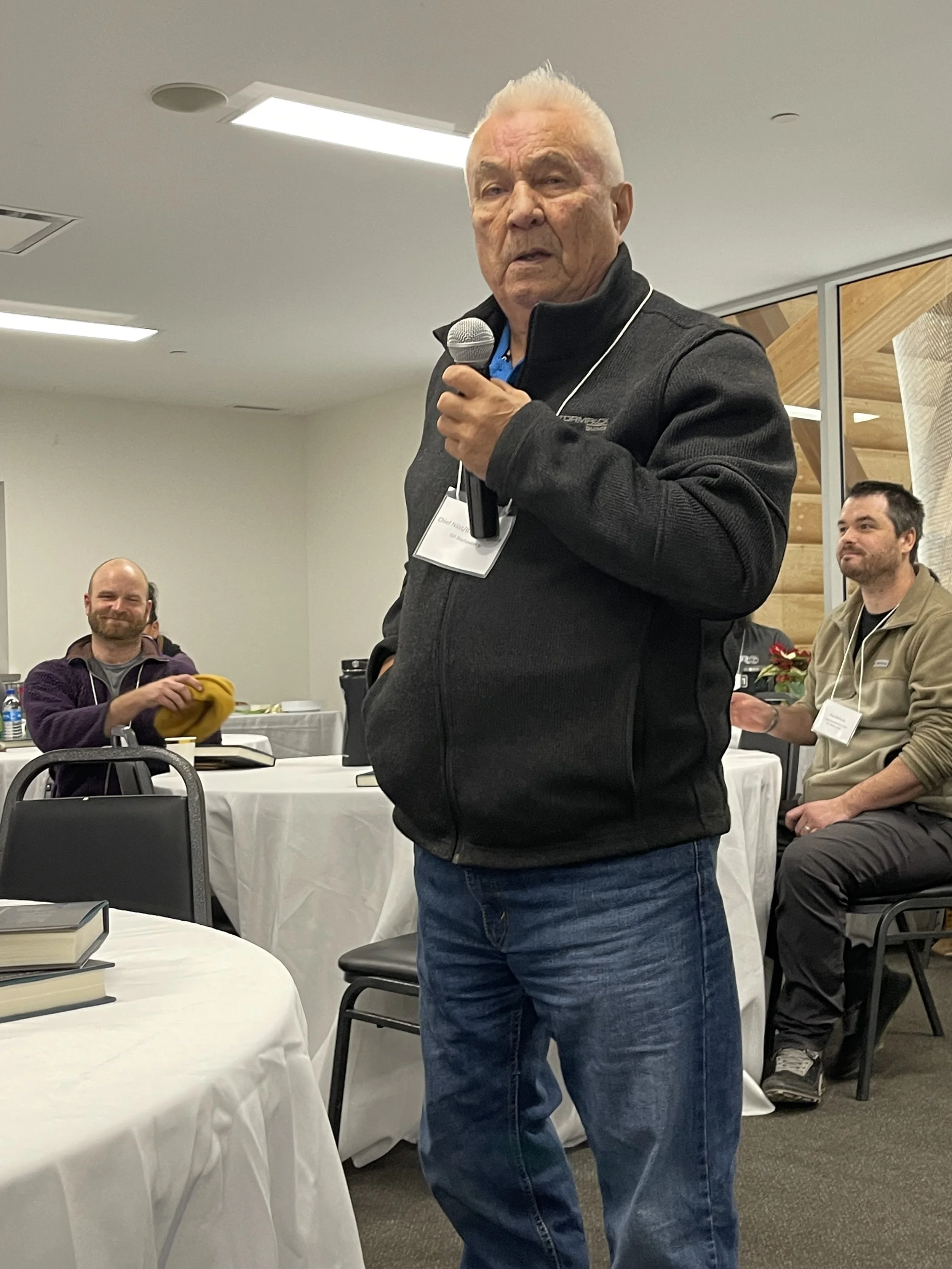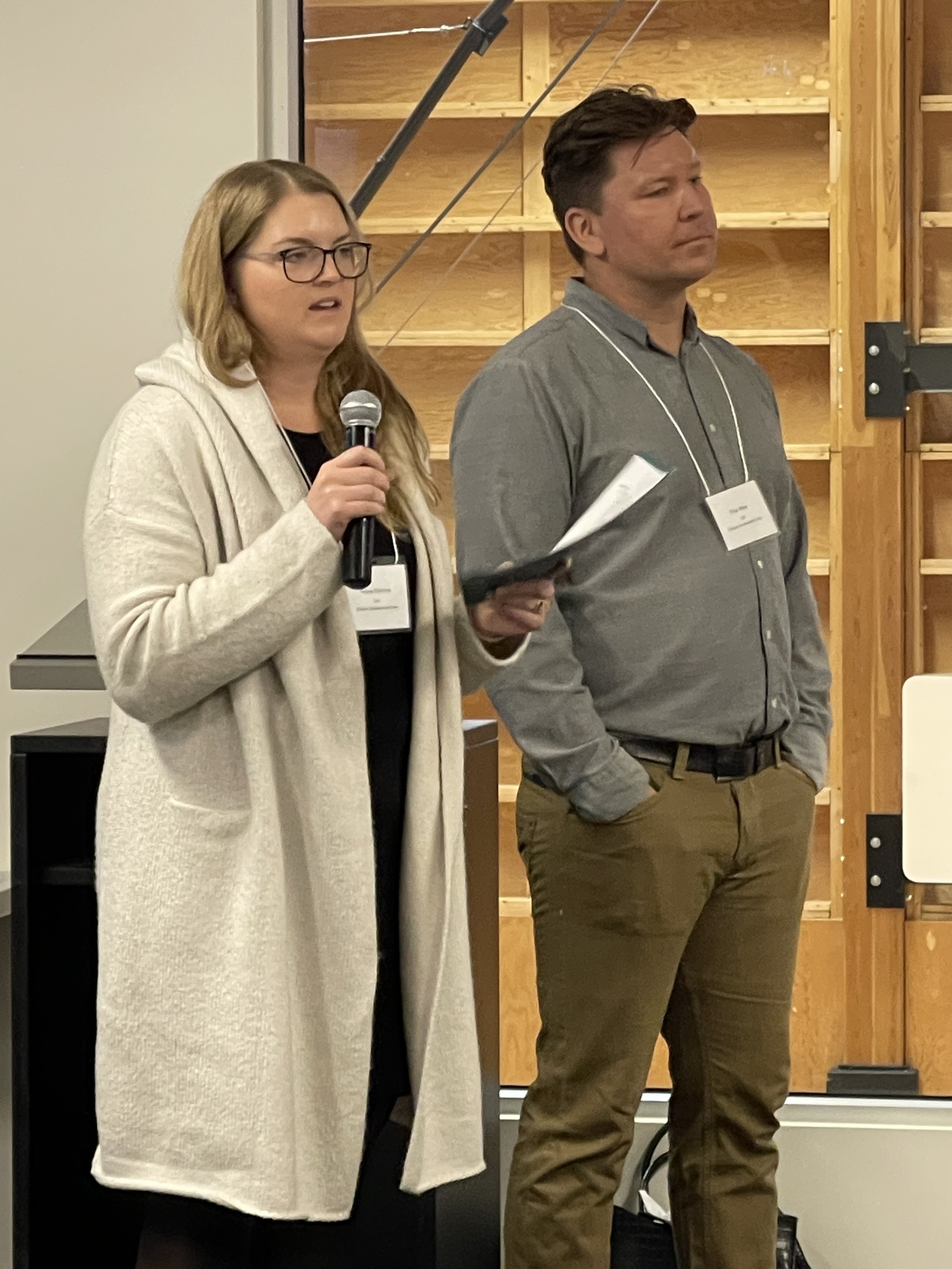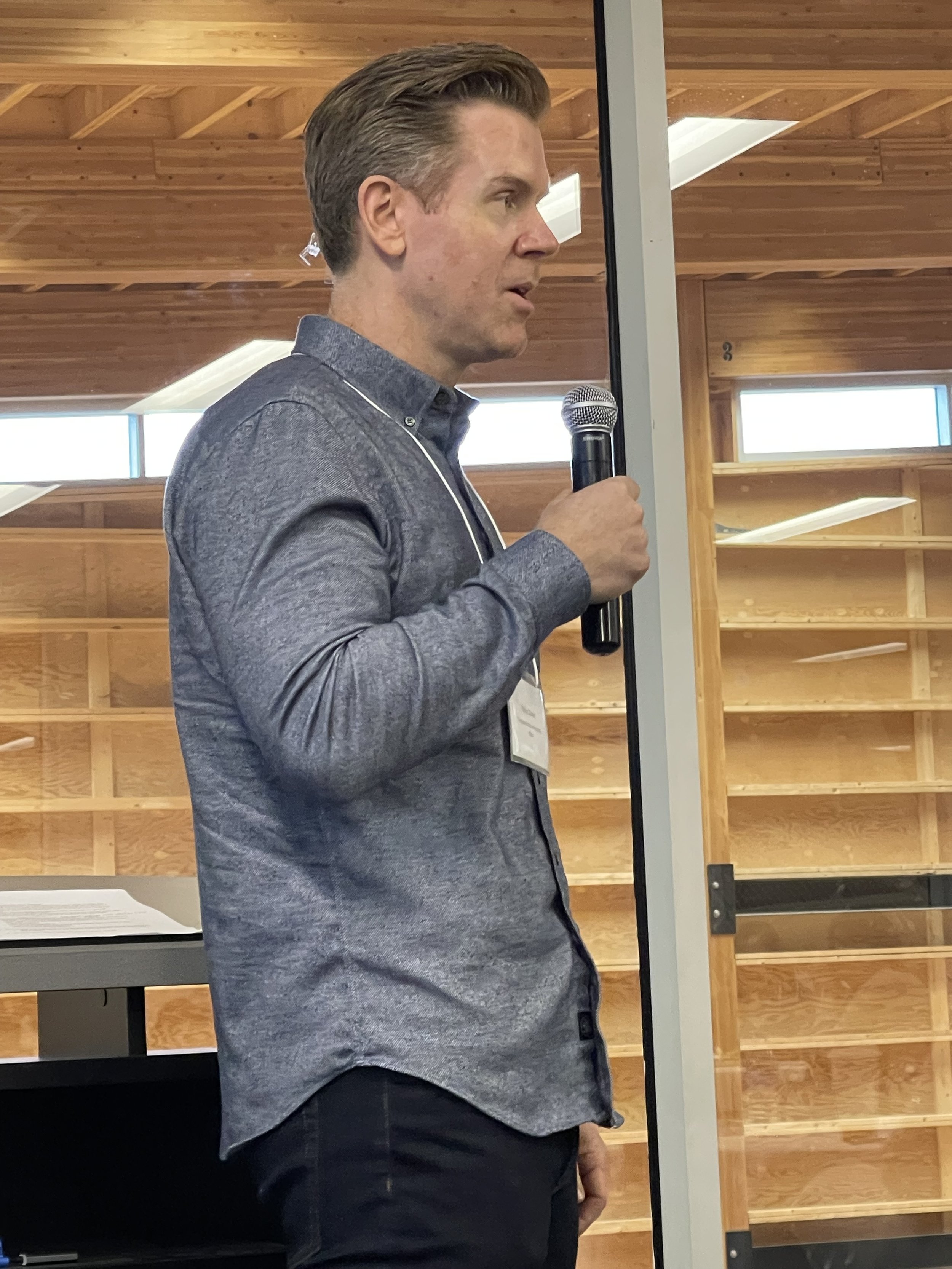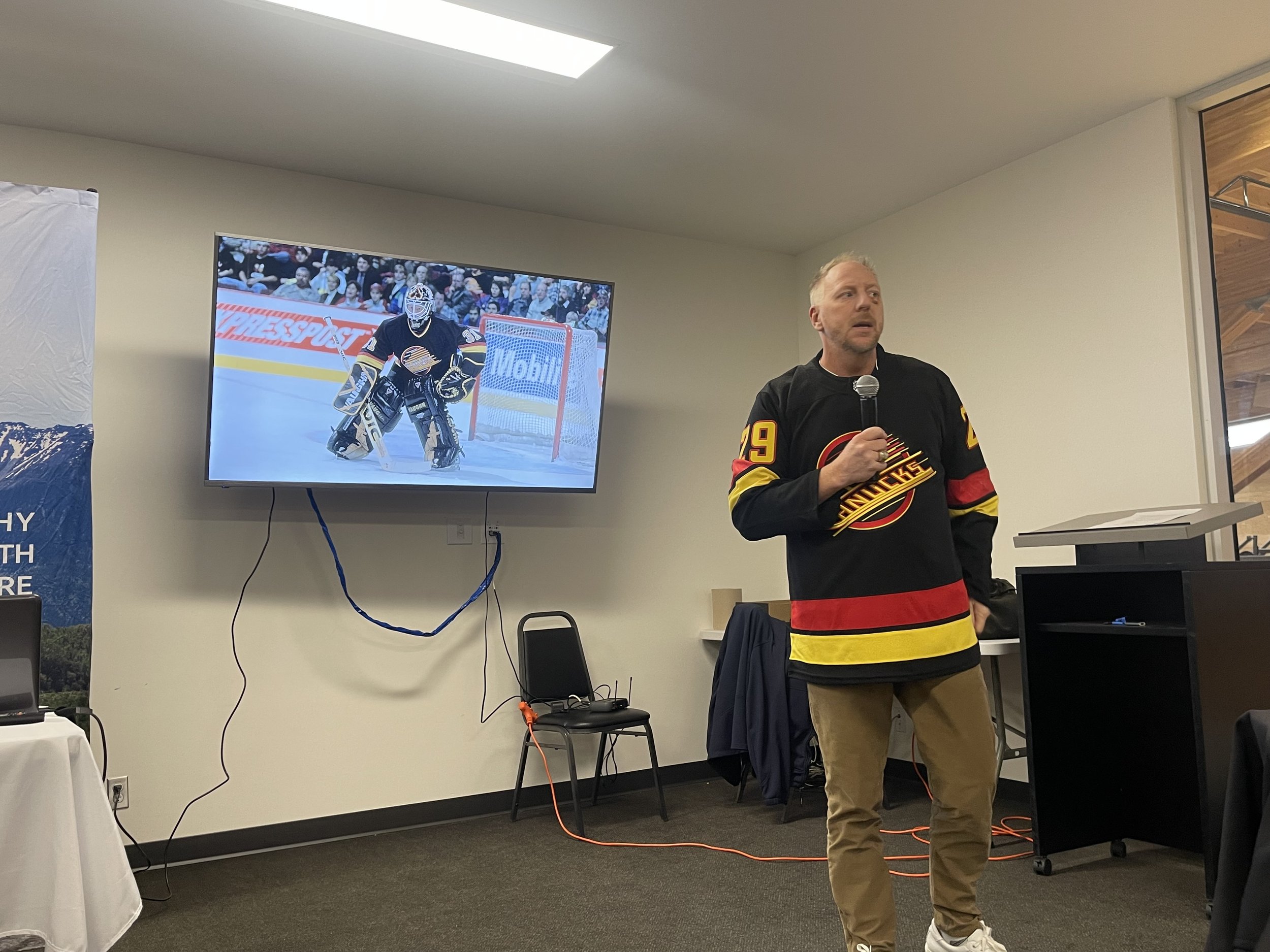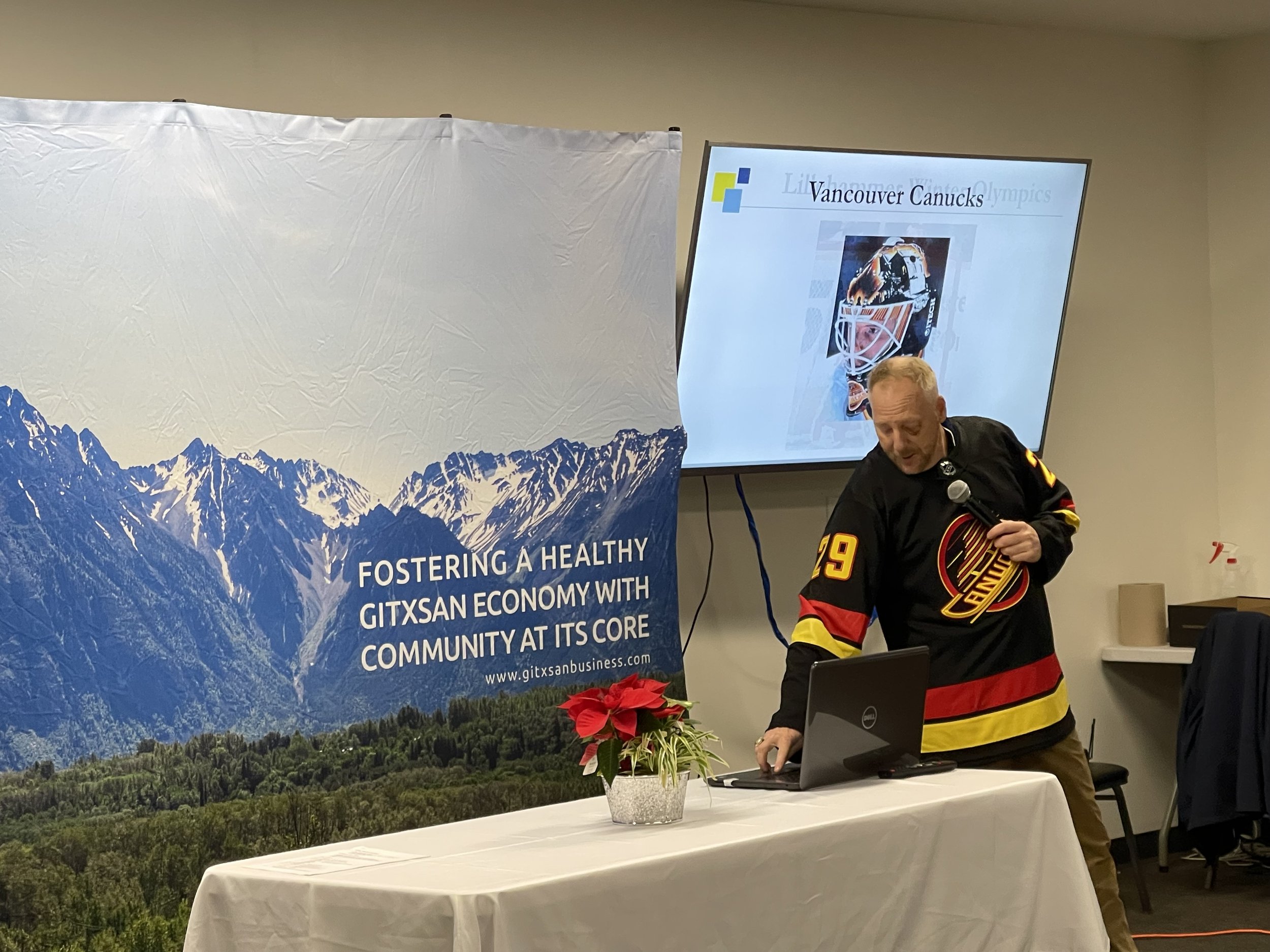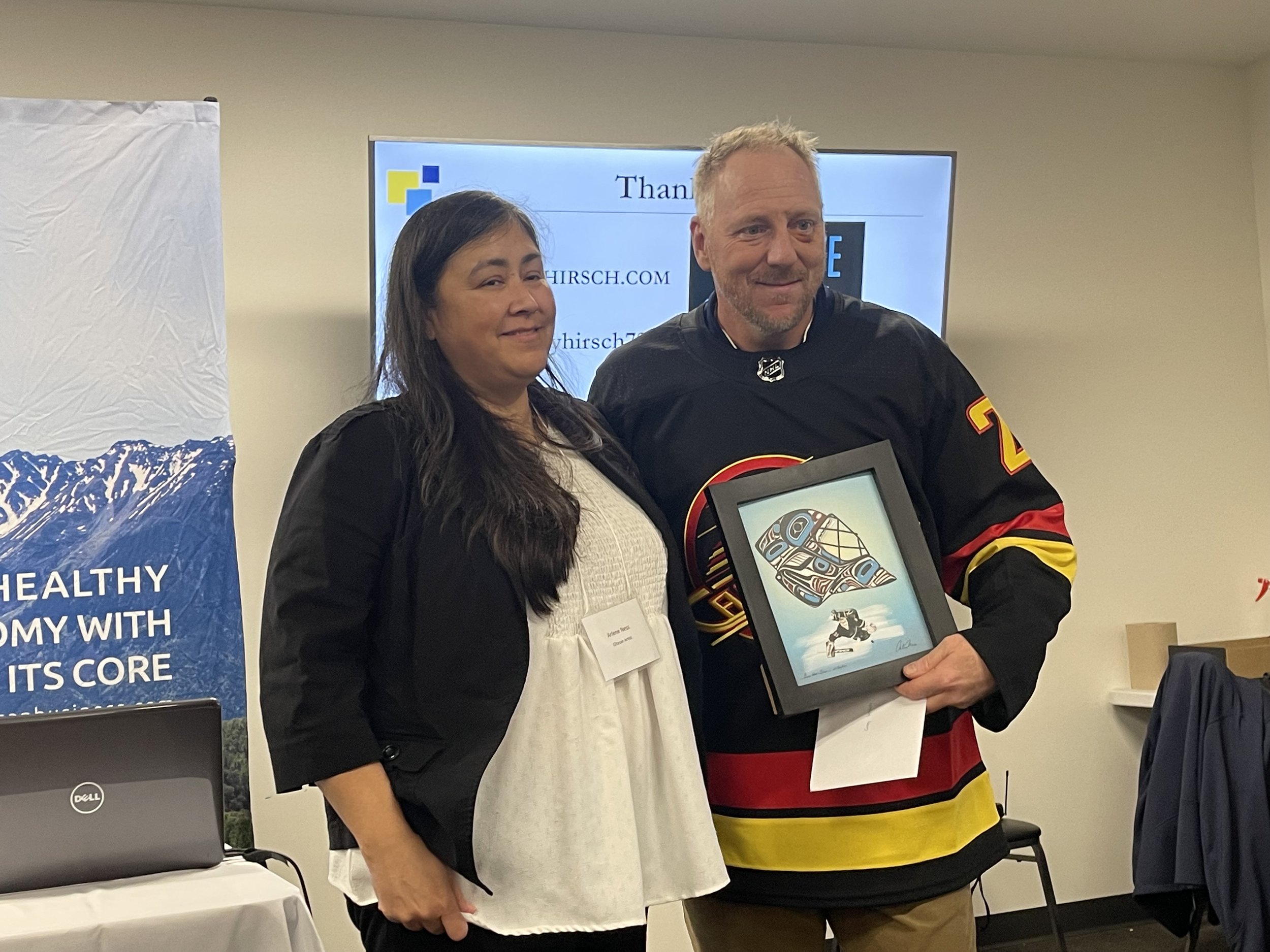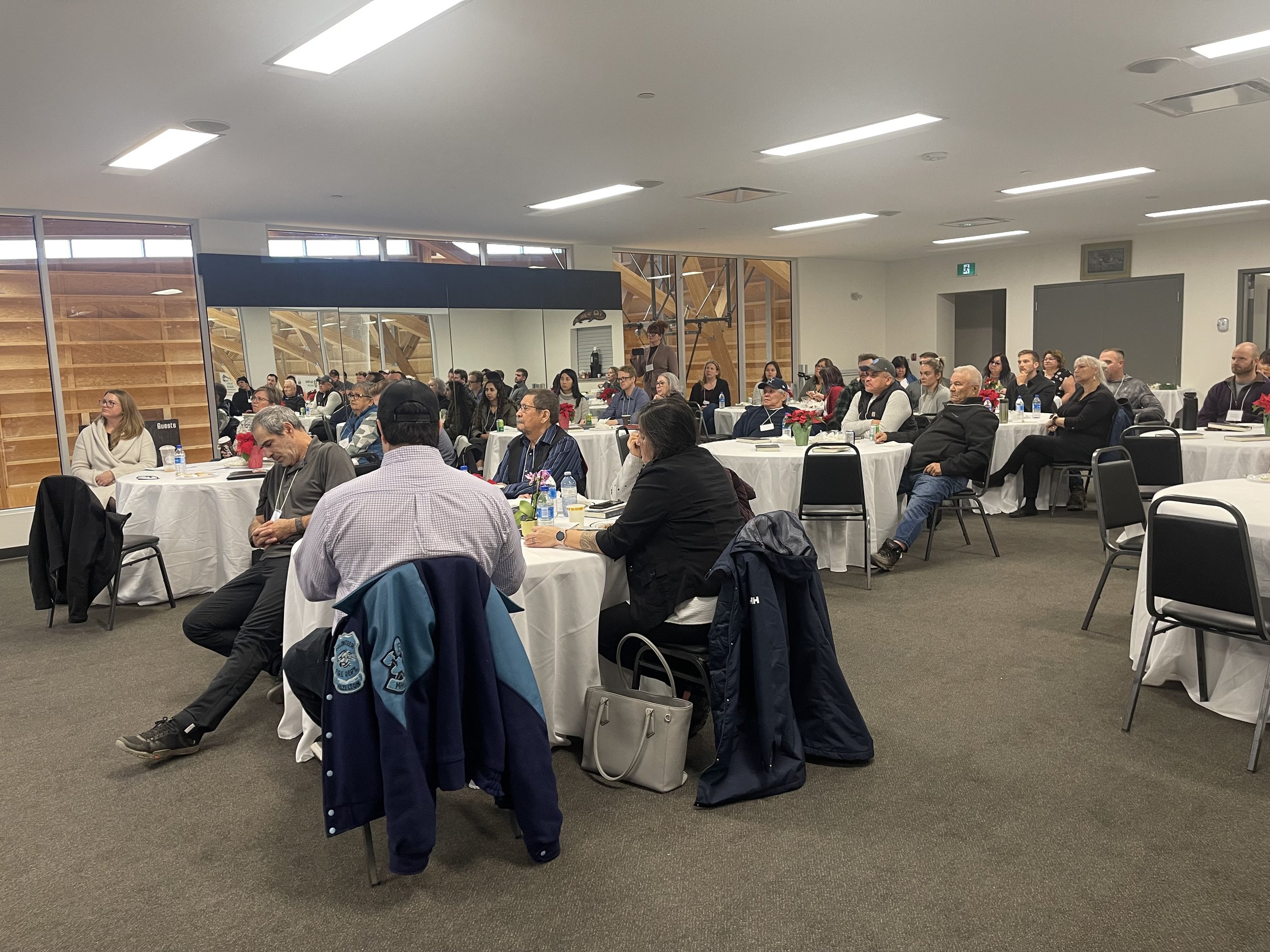Corey Hirsch on Mental Health and Hockey
GDC in partnership with ICBA hosted a community luncheon featuring Corey Hirsch for a talk about mental health and hockey at the Upper Skeena Recreation Centre yesterday. Corey is a retired goaltender from the NHL who played for the New York Rangers and Vancouver Canucks. He also won an Olympic silver medal as part of Team Canada.
Corey Hirsch talks about mental health while he was an NHL goaltender.
Unbeknownst to the public and even teammates, friends and family, Corey suffered internally from Obsessive Compulsive Disorder (OCD). It caused him to spiral into dark thoughts that he knew weren’t correct, but still would be screaming at him continuously. Often, the only reprieve was his time on ice. No one knew of his internal struggles. His OCD wasn’t physical like a broken leg. It also wasn’t a type of OCD where a person would notice him handwashing constantly. Instead, he would have uncontrollable thoughts for weeks and frequently months at a time causing him to have severe anxiety, panic attacks and depression.
In the locker room of the Rangers and the Canucks, Corey did his best to hide his struggles. He cared about everything at heightened levels, but the thoughts driven by his OCD would keep tearing him down relentlessly. He would skip meals, not sleep and have difficulty paying attention. This resulted in him losing weight, being late and not joining his teammates out. He even skipped the Stanley Cup parade when he won it with the Rangers. Corey felt insecure that his teammates would think he didn’t care when in reality he cared deeply about being a part of his team. It just took all his energy to function through a day. He was scared if he spoke up about what he was going through, it would end his NHL career.
Unmasking Mental Illness Video
After many years of this, Corey drove straight towards a cliff at high speed intending to end his life. Fortunately, he hit the brakes in time. His OCD persisted, but he did not give up. It would take more years to get diagnosed properly with pure OCD. Then, two decades more to find the right doctor to truly help him significantly. He will always have OCD, but he now has the tools to live a happier and more peaceful life through therapy and medication.
Corey’s struggles are deeply personal and yet, he chooses to share his story with an openness and honesty with communities all over North America. His goal is to share hope for people suffering and to encourage them to tell someone “I need help.”
Tears were shed, kindness was felt and our Gitxsan and local community came together. Mental health and especially suicide is not something easy to talk about, but so many of us have felt its effects directly or through people we love. We, at GDC, share Corey’s message of hope. If you or someone you know is struggling, here are places you can get help:
Gitanmaax Health and Wellness Centre
Tel: 250-842-6320, ext 252
robertryan@gitanmaaxhealth.ca
Hazelton Community Services
Tel: 250-842-5355
2610 Hwy 62, Hazelton, BC V0J 1Y0
If you would like to learn more about Corey’s story, you can read his book The Save of My Life.

